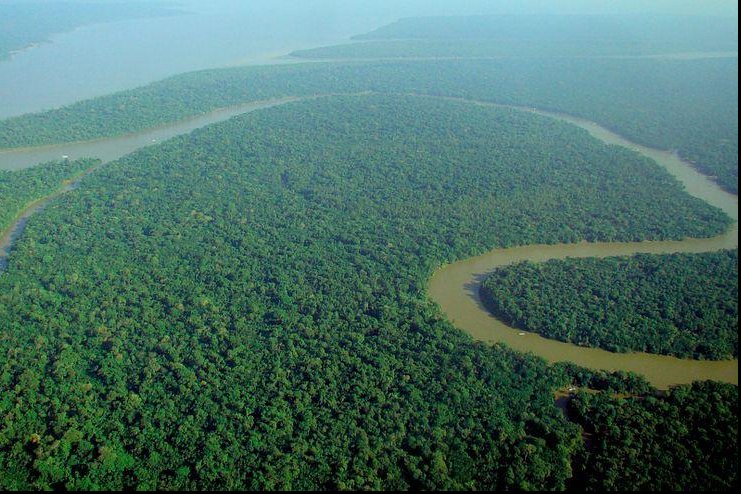Aerial view of the Amazon Rainforest (File/Lubas/Wiki Commons)
BELEM, Brazil, April 15 (UPI) -- The increasingly deadly combination of forest fire and extreme weather spells tragedy for the trees of the Amazonian rainforest, according to a new study by biologists from Brazil's Amazon Environmental Research Institute and the Woods Hole Research Center in the U.S.
Scientists conducted field experiments to observe how severe drought accelerates forest dieback, a phenomenon whereby the overall health of trees decline, making them more susceptible to acid rain, fire, parasites and disease.
The study's details were recently detailed in the Proceedings of the National Academy of Sciences.
Of course, throughout history fires have been sparked by natural forces in Amazon. But fire's devastation has traditionally been well controlled by the forest's natural humidity. However, scientists say a series of long droughts over the last decade have weakened the forest's ability to cope.
In studying the health of several plots of Amazonian rainforest over a period of eight years, scientists observed how drought compromised the forest's ability to withstand and bounce back from the effects of controlled burns.
Scientists also demonstrated the way forest fire and drought operate in a vicious cycle, both slowly destroying a forest's resilience and enabling more flammable grasses and shrubs to take hold on forest floor.
Each year, the plots of rainforest became more vulnerable and flammable.
Making matters worse: climatologists predict prolonged drought to be one of the most pronounced consequences of climate change.
"Much of current scientific opinion suggests that intact tropical forests may be quite resilient to climate change," Professor Yadvinder Malhi, from the Oxford University's Environmental Change Institute, told BBC News. "But the combination of climate change, land-use change and fire may be much more destructive."
Professor Malhi -- who was not involved in the research -- said the study helps demonstrate how both natural and manmade environmental factors work in conjunction to do ecological harm.
"None of the models used to evaluate future Amazon forest health include fire, so most predictions grossly underestimate the amount of tree death and overestimate overall forest health," Woods Hole researcher Michael Coe told The Independent.
[BBC News]
[The Belfast Telegraph]















